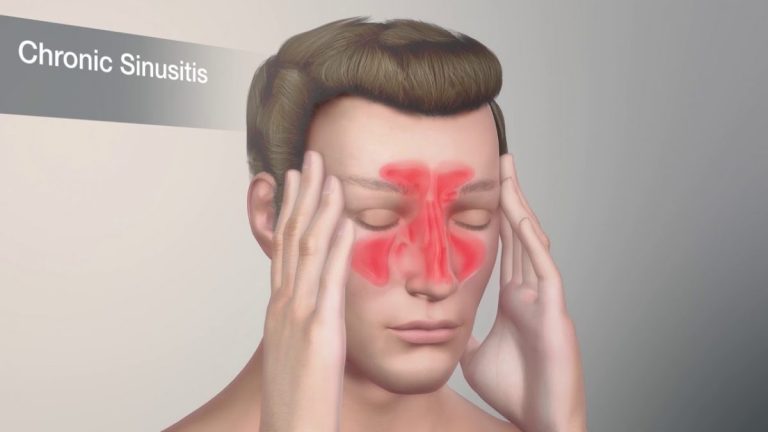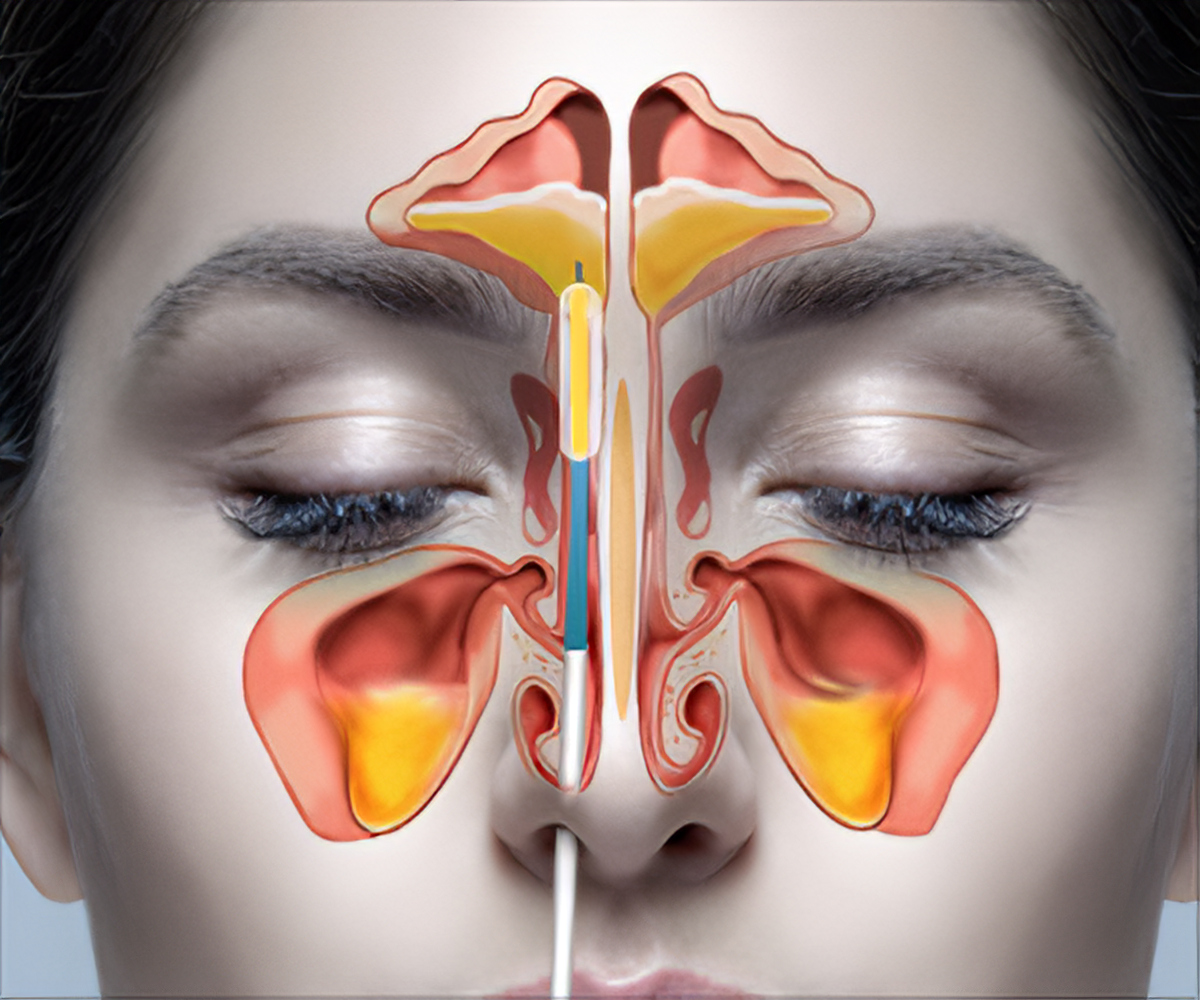Sinusitis Symptoms: Hello, I am Op. Dr. Evren Ay Koç. Today I will give you information about sinusitis, which makes daily life difficult, is sometimes difficult to distinguish from a simple cold, but can become chronic if not treated properly. In this article, I will cover many topics such as what is sinusitis, what are its symptoms, how is it treated, and what you should pay attention to to protect yourself from sinusitis.
Sinusitis Symptoms
What are the symptoms of sinusitis and how is it treated?
What is Sinusitis?
Sinusitis occurs when air-filled spaces called sinuses inside the bones of the face become inflamed. The sinuses are located around the nose, cheeks, forehead, and behind the eyes. The surfaces of these sinuses are covered with mucus-producing cells, and normally the mucus flows into the nose. However, if there is swelling or mucus accumulation in the tissues inside the sinuses, these spaces become blocked, creating an ideal environment for bacteria, viruses, or fungi to grow. In this case, sinusitis occurs. Sinusitis Symptoms
Sinusitis is generally divided into two types: acute and chronic:
- Acute sinusitis usually occurs after a cold or flu and can last for several weeks.
- Chronic sinusitis is the type of sinusitis that lasts longer than 12 weeks and is generally more difficult to treat.
What are the symptoms of sinusitis?
Sinusitis symptoms can vary depending on a person’s age, immune system, and whether sinusitis is acute or chronic. However, the most common sinusitis symptoms are:
- Nasal Congestion : Mucus accumulated in the sinuses causes the nasal passages to become blocked. This causes the patient to feel a constant nasal congestion.
- Facial Pain and Pressure : People with sinusitis often feel pressure and pain in their face. Pain occurs especially in the cheeks, around the eyes, and in the forehead area, and this pain can increase when the head is bent forward.
- Mucus Secretion : Sinusitis causes thick, yellow or green mucus secretion that can drain from the nose or pharynx into the throat. This may be more noticeable, especially in the morning.
- Loss of Smell and Taste : Due to nasal congestion and sinus filling, patients may experience a decrease in their sense of smell and taste.
- Headache : Sinusitis causes a headache that is usually concentrated in the forehead, around the eyes, or temples.
- Fatigue and Weakness : Since sinusitis is an infection that affects the body’s immune system, the person may experience fatigue, weakness and sometimes a mild fever.
- Bad Breath : Bad breath may occur due to mucus accumulation and discharge into the throat due to sinusitis. Sinusitis Symptoms

Sinusitis Symptoms
How is Sinusitis Diagnosed?
If you have symptoms of sinusitis, it would be best to see an otolaryngologist. When making a diagnosis, we usually first look at the patient’s history and symptoms. Then, an endoscopic examination may be performed to examine the inside of the nose in more detail. During this examination, signs of infection, mucus accumulation, or structures such as polyps that can cause sinusitis in the nose may be observed. In some cases, radiological examinations such as tomography may also be used to see the structure of the sinuses and the spread of inflammation more clearly. Sinusitis symptoms can be confused with other diseases, so to make a definitive diagnosis, this diagnosis becomes definite with the tomography result. Sinusitis Symptoms
How is Sinusitis Treated?
Sinusitis treatment varies depending on whether the disease is acute or chronic, the patient’s age and general health status. The methods generally used in the treatment of sinusitis are:
- Drug Therapy : The most commonly used method in the treatment of sinusitis is drug therapy. In this context:
- Antibiotics : If sinusitis is caused by a bacterial infection, antibiotic treatment is applied. However, antibiotics have no effect on sinusitis caused by viruses.
- Painkillers and Fever Reducers : Painkillers and fever reducers may be given to relieve headache, facial pain and mild fever.
- Decongestants and nasal sprays : Decongestants and nasal sprays are recommended to help clear nasal congestion and facilitate mucus drainage, but these medications should be used for short periods of time.
- Nasal Wash with Salt Water : You can wash your nose with salt water to cleanse your sinuses and help with mucus flow. You can easily apply this method at home and relieve your symptoms.
- Surgical Intervention : In cases of chronic sinusitis, if persistent congestion and inflammation persist in the sinuses despite drug treatment, surgical intervention may be considered. Endoscopic sinus surgery opens blocked sinus channels, removes mucus accumulation in the sinuses, and prevents the sinuses from becoming blocked again. This operation usually makes it easier for the patient to breathe and reduces sinus attacks.
- Lifestyle and Diet Adjustments : Keeping the immune system strong is very important for sinusitis patients. Paying attention to your diet, getting regular sleep and avoiding stress can reduce sinusitis attacks. Also, quitting smoking or staying away from cigarette smoke will relieve your sinuses. Sinusitis Symptoms
Ways to Prevent Sinusitis
You can take a few simple precautions to protect yourself from sinusitis:
- Wash your hands frequently and pay attention to hygiene, especially during the cold winter months.
- Keep your immune system strong to avoid upper respiratory infections such as flu and colds.
- Be careful to drink fluids and prevent the sinuses from drying out by using nasal humidifiers, especially in the winter months.
- If you have seasonal allergies, make sure you are well-controlled for allergies, as allergic sinusitis is common.
Conclusion
Sinusitis is a condition that reduces the quality of life and can become chronic if not treated properly. It is important for patients with symptoms such as facial pain, nasal congestion and headache to see an ear, nose and throat specialist without delay. You can increase your quality of life again with appropriate treatment options for your sinusitis . If you are experiencing sinusitis symptoms, you can contact me directly . I wish you healthy days!
Questions From You
How to Understand Sinusitis?
Sinusitis manifests itself with symptoms such as nasal congestion, headache, facial pain and runny nose. If you suspect you have sinusitis, symptoms such as nasal discharge being green or yellow and pain increasing when you bend your head forward are noteworthy. In addition, postnasal drip, bad breath and fatigue are among the symptoms of sinusitis. If sinusitis symptoms persist, it is recommended that you see a doctor. Sinusitis Symptoms
How to Cure Sinusitis Fastest?
Antibiotics, nasal sprays and painkillers prescribed by a doctor are among the most effective solutions for quickly curing sinusitis. In addition, home remedies include taking a hot shower, breathing steam and cleaning the nose with salt water. Drinking plenty of fluids and increasing the humidity in the environment also help to relieve sinusitis by opening the sinuses.
What to Do If You Have Sinusitis?
When diagnosed with sinusitis, it is important to pay attention to hygiene and ensure that the sinuses are opened. Using nasal decongestants, avoiding cigarette smoke, and regularly using nasal irrigation solutions play a supportive role in the treatment of sinusitis. During this process, hydrating your body by drinking plenty of water will relieve your sinuses. Sinusitis Symptoms
What Should Be Done To Drain The Sinuses?
To drain the sinuses, it is recommended to regularly wash the nose, take a steam bath and drink plenty of fluids. In addition, applying a warm compress and inhaling steam by tilting the head forward will help open the sinuses. It is also important for the environment to be humid for the sinuses to relax. Sinusitis Symptoms
What are the factors that trigger sinusitis?
Factors that trigger sinusitis include cold weather, cigarette smoke, dust, and allergens. In addition, upper respiratory tract infections can make sinusitis more frequent. You can reduce your risk of developing sinusitis by staying away from these triggers. Paying attention to allergic reactions and maintaining hygiene can help prevent sinusitis.
What Disorders Does Sinusitis Cause?
Sinusitis causes symptoms such as headache, nasal congestion, postnasal drip and facial pain. Headaches due to sinusitis are usually felt more intensely in the morning. Congestion and inflammation in the sinuses cause pressure and tenderness around the eyes and cheeks. Sinusitis Symptoms
What is the Definitive Solution for Sinusitis?
A definitive solution to sinusitis may require surgical intervention in some cases. Surgery may be recommended to clean the sinuses, especially in chronic sinusitis. However, most sinusitis cases are cured with antibiotics and nasal decongestants. For a definitive solution, the treatment methods recommended by the doctor should be taken into consideration. Sinusitis Symptoms
How Does a Sinusitis Headache Feel?
Sinusitis headaches are usually felt in the forehead and the front of the head. This pain increases when the head is bent forward or with sudden movements. Sinusitis-related headaches manifest themselves with a feeling of pressure and fullness and can often spread to the area around the eyes. Sinusitis headaches, unlike other headaches, are caused by inflammation in the facial sinuses.
Does Sinusitis Affect the Eye?
Yes, sinusitis can affect the eye. Sinusitis can cause a feeling of pressure around the eyes and swelling or redness under the eyes. Especially in cases of inflammation of the maxillary sinuses, pain around the eyes becomes more pronounced. The pressure on the eye caused by sinusitis does not affect the field of vision, but it does create a feeling of discomfort. Sinusitis Symptoms
Does Sinusitis Increase CRP Levels?
Sinusitis can increase CRP levels because it causes inflammation in the body. CRP (C-reactive protein) levels increase in the body in cases of infection and it is normal for this value to increase in inflammatory diseases such as sinusitis. If your CRP value is high, you should see a doctor to check if you have an inflammatory condition such as sinusitis.
What medications are used in the treatment of sinusitis?
Medications used in the treatment of sinusitis include antibiotics, nasal decongestant sprays, and painkillers. However, sinusitis treatment is a personal matter and it is best to use medication according to the doctor’s recommendation. In the treatment of sinusitis, it is important to use the medications recommended by the doctor regularly and to follow the symptoms during the treatment process.






